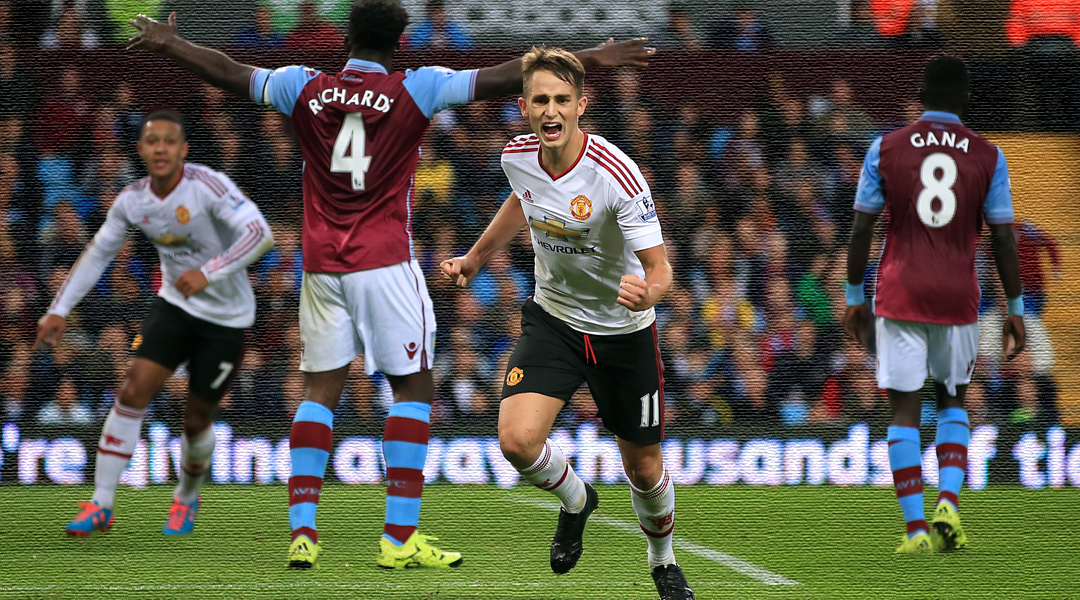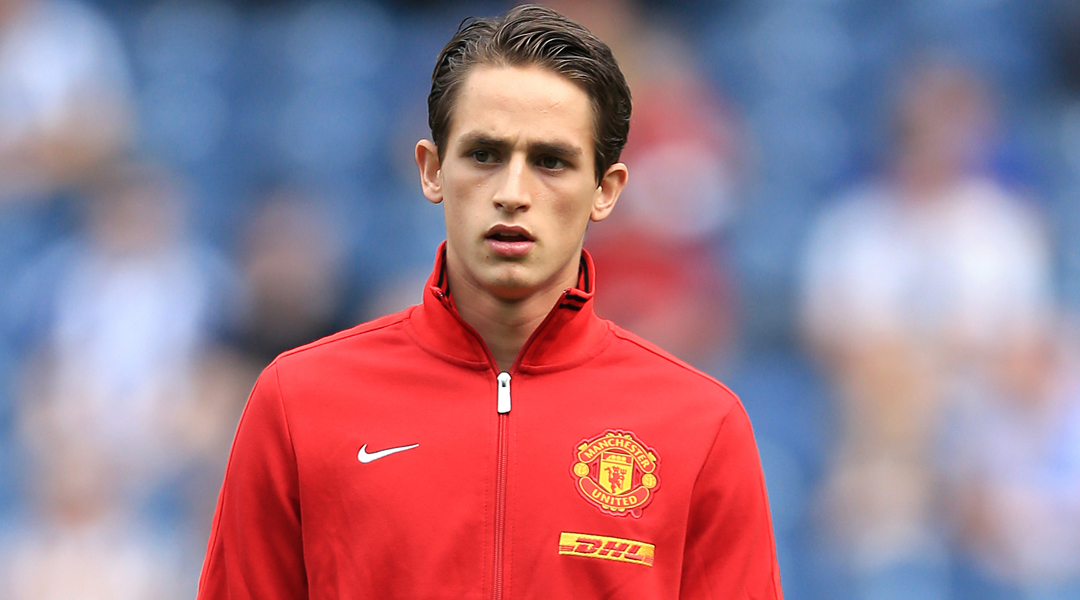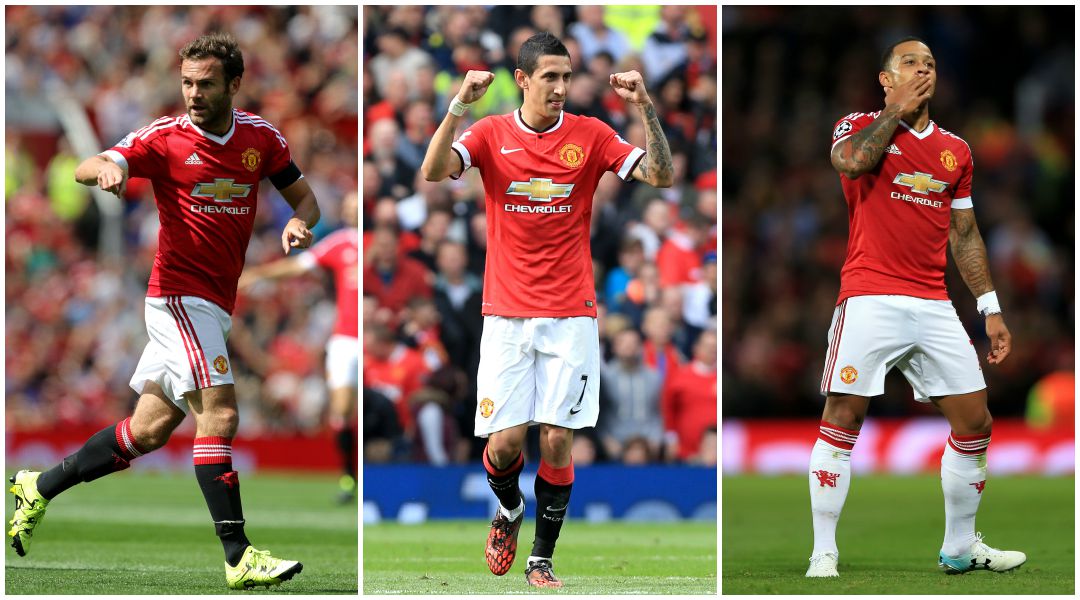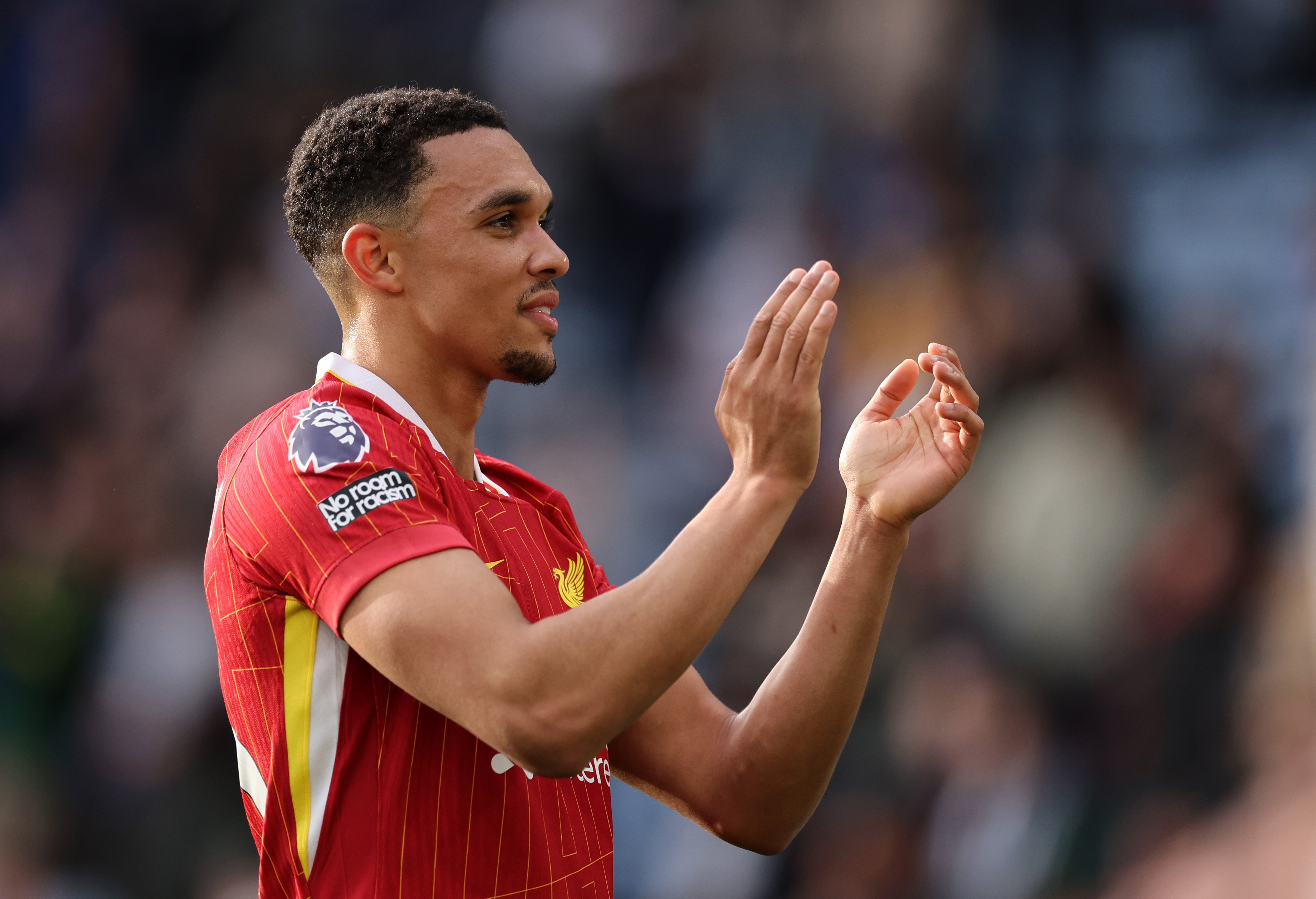Fergie, fitting in and the future for Adnan Januzaj at Manchester United
Brought in by Sir Alex, matured by Moyes and then initially forgotten about by Van Gaal, the 20-year-old is now back in the picture at Old Trafford after a tough year. And now he has a real chance to shine, writes Alex Hess...

It’s become customary, when assessing the state of Manchester United these days, to refer to the paucity of forward planning undertaken by Alex Ferguson. The Scot’s place amid – if not atop – the pantheon of great managers is not up for debate, but there’s equally little argument that one of his few failings was an inability to build a unit that would outlast his own tenure.
What he instead bestowed was a creaking squad, a floundering manager and an executive staff whose deal-brokering often calls to mind Shelley ‘The Machine’ Levene, Jack Lemmon’s unforgettably hapless real-estate salesman from Glengarry Glen Ross. That the Scot’s exit provided the cue for Old Trafford to transform instantly from a fortress into a house of cards – and the scale of the restoration job required since – offers sound evidence for what was, depending on your point of view, either carelessness or negligence on the part of latter-years Fergie. But hey, nobody’s perfect.

Fergie's fault?
A point made less often is that while Ferguson’s short-term provisions may have been little more than snake oil, many of the longer-term prospects he left behind could prove rather useful indeed. James Wilson, Jesse Lingard, Tyler Blackett and Paddy McNair are all of a calibre to contribute in due time, or at least command a sizeable transfer fee – as was the case with Danny Welbeck. The same can be said for playmaker Andreas Pereira, who has been tip-tapping promisingly around the team’s fringes during pre-season.
The real jewel bequeathed by Ferguson, though, was Adnan Januzaj. The Scot oversaw Januzaj’s recruitment from Anderlecht at the age of 16, and although his debut came under David Moyes, it was the elder Glaswegian who coaxed him into first-team affairs (his first involvement was as an unused substitute in Ferguson’s final game, an anarchic 5-5 draw against West Brom at The Hawthorns).

And yet in the post-Ferguson years, it could be argued that his failure to account for the short-term has also served to undermine the best long-term donation that he did leave. Or to put it another way: each of United’s major signings since his departure – made to heave prime-aged players into a threadbare and imbalanced squad – have directly contributed to the stagnation of the club’s best youngster.
To recap: in the 12 months following Ferguson’s exit, the club twice broke its own transfer record to bring in Juan Mata and then Angel Di Maria – both foraging creators who play in Januzaj’s style and occupy his station. This summer’s marquee arrival was Memphis Depay from PSV Eindhoven: a more visceral, direct player than the others, but who will certainly occupy one of the supporting-attacker berths. Even Marouane Fellaini has often been deployed as a makeshift No.10 under Louis van Gaal.
Get FourFourTwo Newsletter
The best features, fun and footballing quizzes, straight to your inbox every week.

That’s a total of £150m – and four of the club’s 10 priciest signings ever – which has often lain between Januzaj and a first-team outing (and none of this is to mention the shock resurgence of Ashley Young).
New system, new start
But even the sudden glut of competition doesn’t entirely explain the player’s stark marginalisation last season. Under Moyes, Januzaj had made 19 starts in all competitions in what was largely read to be his breakout year. But where most breakouts are followed by freedom, Januzaj’s heralded further imprisonment: he appeared on Van Gaal’s team-sheet just eight times. By spring, the discussion had gone from which country the gifted teenager would play for to whether he’d play at all.
Quite why so little was seen of Januzaj is not entirely clear but it would make sense if, during his first year in a high-profile job, Van Gaal was rather more focused on the club’s immediate future than he was on sprucing up its young hopefuls. Hence the deployment, for example, of Fellaini as a free-roaming wrecking ball – not a move likely to have been taken from the Total Football playbook.

The stopgap 3-5-2 system devised by the Dutchman midway through the season also left little room for Januzaj, and, as tends to happen with the young and talented, tabloid whispers abounded of a suspect attitude. When the going got tough, it was said Januzaj was in no mood to get going.
All of which makes his inclusion in Van Gaal’s last three teams all the more interesting. Indeed, Januzaj’s starting berth at Villa Park was probably more of a surprise than when he scored the game’s decisive goal – a strike dispatched with the precision and composure that are quickly becoming his trademark qualities, and whose build-up was marked by the scorer injecting the Manchester United attack with the crisp, tempo-raising passing that’s been notably infrequent for a while now.
At a joint press conference last week, both manager and player were quizzed about Januzaj’s peripheral status so far under Van Gaal. While Januzaj nodded earnestly and offered the customary fare about wanting to "give everything for the manager and the club", his boss offered some insight: "He is 20 years old. The characteristic of a young player is he is not consistent. He has to show that."
He is 20 years old. The characteristic of a young player is he is not consistent. He has to show that
Januzaj will be pleased to see last year’s wing-back formation has been ditched. There is still plenty of competition, but six established players (the others being Wayne Rooney, Mata, Young, Depay and Javier Hernandez) across either three or four attacking slots should mean he sees a good deal of action. It is a silver lining to the club being gazumped to the signature of Pedro. While there is still talk of a loan move, it would be difficult to see Van Gaal green-lighting that in lieu of a high-profile arrival.
Finding his feet
Januzaj’s stationing on the wing, along with him inheriting Ryan Giggs’ No.11 shirt, implies a calling to join United’s legion of great widemen – but the United player Januzaj most resembles is probably Mata. Januzaj is no slouch but his incision tends to come more through craft than pace; he’s more inclined towards a searching pass than a mazy run. Those who followed Januzaj at Anderlecht will tell you he only ever wore No.10, and the player himself said last week that he favours a central playmaking role.
Ferguson’s own description of the Belgian as “a beautifully balanced player” tallies with this, as does former Belgium international Marc Degryse’s assessment that Januzaj’s defining qualities are “flair, vision and elegance”. The youngster’s inability to enliven United’s plodding attack against Newcastle was a reminder that the youthful inconsistency spoken of by Van Gaal hasn’t yet been overcome. But his reinstatement to the side, ahead of players like Young, promises greater involvement this time around.

Right now United’s attack, laboured and under scrutiny, is perhaps not the ideal environment for a featherweight youngster looking to find his feet again. But this can only be an excuse up to a point: Januzaj has already shown a penchant for finding magic amid the mundane, his volley at the Stadium of Light the obvious example. He routinely exhibits the sort of fleet-footedness and lightness of touch notably missing from certain other United attackers of late. The opening weeks of this season have been marked with the flourishing of players who are proof of the paucity of opportunity offered to precocious talents by the league’s biggest clubs. Romelu Lukaku, Wilfried Zaha and Jonjo Shelvey have all needed to clamber down a rung or two in order to get time on the pitch and realise their potential. So far this season, the early signs are that Januzaj could be one of the few who may blossom by staying put.
